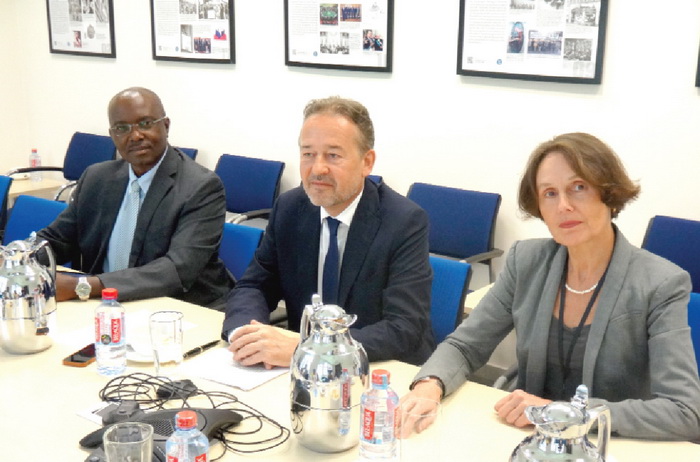
Africa high on G20 Summit agenda
AFRICA was for the first time high on the Agenda of the 2017 G20 Summit, which was held in Germany recently.
Advertisement
The Summit brought together nine heads of government, including Ghana’s President, Nana Addo Dankwa Akufo-Addo, heads of the World Bank, the International Monetary Fund (IMF) and the African Development Bank (ADB), as well as the Federal Chancellor of Germany, Dr Angela Merkel, German Minister of Finance, Dr Wolfgang Schäuble, and the German Development Minister, Dr Gerd Müller.
The various state officials discussed issues of central importance to the continent’s future, as well as forging a new partnership between the 20 most important industrialised and emerging countries and Africa.
Media briefing
The German Ambassador to Ghana, Mr Christoph Retzlaff, together with the Country Director of the World Bank, Mr Henry G. R. Kerali, and the Resident Representative of the IMF Madam Natalia Koliadina, met selected journalists at the embassy in Accra to throw more light on the summit.
Mr Retzlaff explained that to renew efforts of cooperation and enhance sustainable economic development, the German G20 Presidency had launched the G20 Africa partnership.
He said the partnership sought to support reliable financial frameworks in order to increase investment opportunities, push for more sustainable infrastructure, as well as create jobs and employment in African countries and thereby contribute to the African Union (AU) Agenda 2063.
“In this regard, the partnership intends to support related political initiatives of the G20 and facilitate joint commitments (investment compacts) between African countries, G20 partners and international financial institutions,” he noted.
Compacts should be demand driven and form the basis for long-term cooperation, with the aim of creating a sound investment climate in relevant sectors of selected African economies.
The ambassador said Ghana became one of the new seven compact countries, joining Tunisia, Côte d’Ivoire, Senegal, Rwanda, Morocco and Ethiopia.
Germany-Ghana cooperation
He said it was in line with this that Germany and Ghana had agreed to intensify their cooperation in the fields of renewable energy, technical and vocational training and financial sector development.
Accordingly, he said Germany was willing to invest up to 100 Million Euros for the first year to ensure an enabling environment for private sector investment and thereby create better employment opportunities.
Two other compact countries, namely Tunisia and La Cote d’Ivoire, will additionally enter into a reform partnership with Germany.
The World Bank Representative, Mr Henry G. R. Kerali, said it was critical that the processes for investing in business in the country were streamlined.
My Kerali said business registration processes, such as other administrative bottlenecks, must be looked at to make it attractive for the private sector to invest in the country.
Certain areas must be reviewed and the country’s Companies Code 1963, for instance, must be looked at again, he added.
For her part, Madam Koliadina, said the Compact was an excellent vehicle to strengthen the framework for private capital and investment and ensure best practices.
The Compact
The Compact is envisaged to improve the macro, business and financing framework for private investment, including infrastructure.
It also sought to develop and support sustainable infrastructural growth through knowledge sharing on quality infrastructure investment and the sustainable management of natural resources.
The G20 acknowledges its special responsibility to join forces in tackling the challenges facing the poorest countries, especially in Africa.
The Compact with Africa initiative, therefore, aims to boost private investment and investment in infrastructure in Africa.
Such investment is an essential precondition for strong, balanced and sustainable growth. However, spurring higher investment levels – particularly from foreign investors – requires improved conditions for investment.



